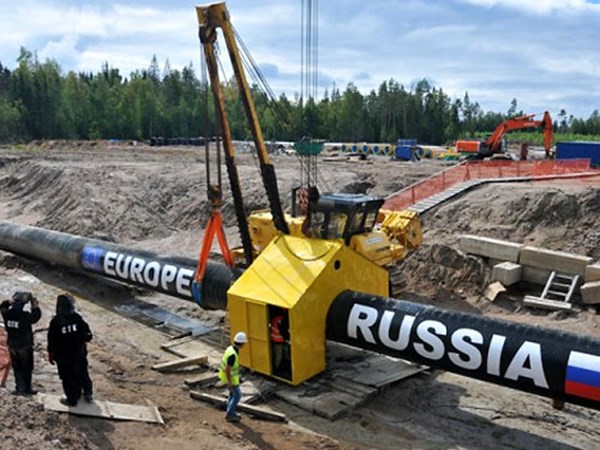US Senate approves sanctions against Nord Stream 2
The US Senate has approved the National Defense Authorization Act (NDAA) for the 2020 financial year, which obligates the White House to impose sanctions on the Russian gas pipelines Nord Stream 2 and Turkish Stream.
On December 11, the House of Representatives voted in favor of the NDAA, and now the 3,500-page document is on President Donald Trump’s desk, awaiting his signature.
Certain points of the document, which raises the US’s annual military expenditure by 3.1% to $738 billion, impose “deterrents” on Russia: An embargo on direct military cooperation, a ban on officially recognizing the annexation of Crimea, and sanctions against Russian gas projects.
The sanctions stipulated in the NDAA can apply to companies which provide vessels for the construction of export pipelines. In the case of Russia’s Gazprom, the providers are Swiss Allseas and Saipem, which own the world’s fastest pipe-laying vessels, which can lay up to 5 km per day.
According to the amendments to the NDAA authored by Republican Senator Ted Cruz and Democrat Jeanne Shaheen, such restrictions will safeguard Europe’s energy security.
The initial version included severe sanctions on Russian government debt, with restrictions on the secondary market and ruble-denominated bonds, of which $44 billion is held by non-residents of Russia.
The bill gives the US Department of State 60 days to compile a list of companies that will come under the sanctions. The companies will then be given another 30 days to cease their activity.
The US could have imposed sanctions on the participant companies even earlier: They were set out in the Countering America’s Adversaries Through Sanctions Act (CAATSA), which was passed in 2017, notes Gerhard Mangott, professor of political at the University of Innsbruck, an expert on Eastern Europe.
However, the Trump Administration chose not to do so, even though Germany’s position in the dispute with the US was inherently weak: “If Germany had tried to get revenge by punishing the Americans for the sanctions on Nord Stream 2, it would have found itself in a very vulnerable position with regard to restrictions against the German automotive industry,” said Mangott.
Even without US sanctions, Gazprom’s export opportunities have taken a hammering. In September, the European Court of Justice banned the Russian company from utilizing more than half of the capacity of the OPAL pipeline – the land offshoot of the first Nord Stream line.
The decision was made based on a lawsuit from Poland, which insisted that, by giving Gazprom access to the pipe that pumps gas from Nord Stream to countries in Central and Western Europe, the European Commission violated the principles of the EU gas directive, which prohibits one company from being both the gas supplier and the owner of the pipeline.
For Gazprom, this decision means a loss of 18 billion cubic meters per year, one third of Nord Stream 1’s designed capacity (55 billion cubic meters).
